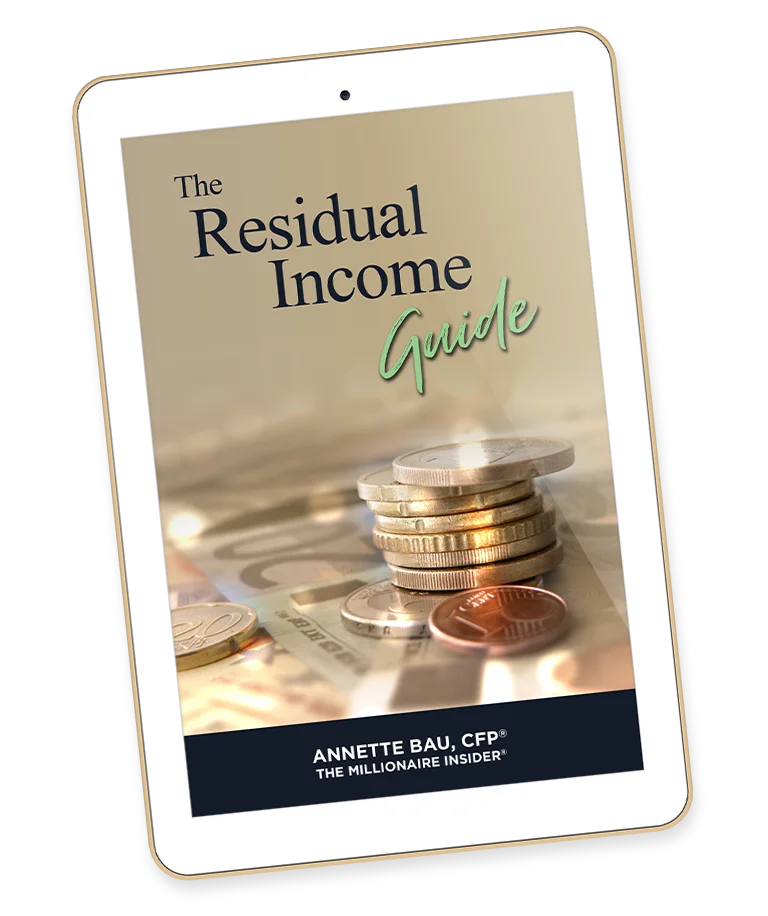While most people don’t love paying income tax on money earned, they expect and plan for it.
However, getting an unexpected tax bill or failing to figure in taxes due on retirement income can wreak havoc on the best plan.
Today, we are diving into various situations you need to consider, ideally before you retire. Your situation is unique to you.
For this reason, you must review your situation with a qualified advisor before retiring. This includes reviewing sources of income and the taxation you expect during retirement.
In addition, many questions come up regarding taxes in retirement.
Common questions include:
- Which income is tax-exempt?
- What will my income tax rate be?
- Will my tax bracket change in retirement?
- What ways can I reduce my taxable income?
- How does retirement income impact my combined income?
- Is it better to take money from a traditional IRA, Roth IRA, or a 401k?
- Which assets are subject to long-term capital gains taxes?
Introduction to Taxes in Retirement
Retirement is a milestone for most people—a new way of life. It is transitioning from a structured career to an often freer-flowing existence. Along with it comes the burden of affording your new lifestyle. 
While you may believe you have enough money for your golden years, have you considered how to handle taxes in retirement?
Understanding the tax ramifications of your retirement income is crucial for maintaining financial stability and optimizing resources. This includes the impact on your income for state and federal income taxes.
Today, we delve into:
- Considerations of taxes in retirement
- Types of taxes that may impact you
- Key terms and strategies to help you navigate this complex terrain
Disclosure
All materials and intellectual property are copyrighted by MillionaireSeries.com®.
This information is for educational purposes only. It is not intended to replace any advisor or specialist or provide any investment, financial, tax, retirement, planning, or healthcare advice.
By reading this, you agree to hold MillionaireSeries.com® and its affiliates harmless for results achieved or not achieved.
Types of Retirement Income and Tax Implications
Social Security Benefits
One of the primary income streams during retirement is Social Security. While Social Security benefits are a lifeline for many retirees, they are not entirely tax-free.
The taxation of Social Security benefits depends on your total income. Examples include pensions, annuities, and investment income. Understanding how the taxation of Social Security works is vital for effective tax planning. If you have questions, click here.
Pensions and Annuities
Pensions and annuities are common sources of retirement income. They may come from your employment or your personal savings. The tax treatment of these funds varies based on the type of plan and contributions made over the years.
Understanding the tax implications of pension and annuity income is critical before you retire and start taking it. This will help you to maximize your after-tax income.
Investment Income
Retirees frequently rely on investment income,  such as dividends, and capital gains, to sustain their lifestyle.
such as dividends, and capital gains, to sustain their lifestyle.
The tax consequences of investment income can fluctuate. Factors to consider include the following:
- Type of investment account
- Adjusted gross income of the taxpayer
- Holding period of the assets
- Your overall financial situation
- Tax nuances associated with different investment vehicles to optimize your tax efficiency
For example, currently, long-term capital gain taxes are taxed at a lower rate than short-term gains, which are taxed at ordinary income.
Short-term gains apply to assets you own for less than a year before selling them.
For many, ordinary income taxes are significantly higher than capital gain tax rates.
It is important to consult with a financial or tax professional who can review your entire situation before selling any assets.
Tax-Efficient Withdrawal Strategies
Traditional vs. Roth Accounts
Retirees often struggle with whether to withdraw funds from traditional or Roth retirement accounts. Traditional accounts offer tax-deferred growth, but withdrawals are subject to income tax.
In contrast, Roth IRAs are funded with after-tax dollars and provide tax-free withdrawals.
Developing a strategic withdrawal plan that considers the tax implications of each account type is essential for minimizing tax liability.
Required Minimum Distributions (RMDs)
Retirees with traditional retirement plan accounts, such as IRAs and 401Ks, must take mandatory withdrawals.
These withdrawals are called Required Minimum Distributions (RMDs) and are required after reaching a certain age. Failure to adhere to RMD requirements results in penalties.
The new rules allow you to consider which tax year you will begin withdrawing, but they have specific rules. Consulting with a qualified financial advisor familiar with your situation is critical.
Tax Credits and Deductions for Retirees

Senior-Specific Tax Benefits
The tax code offers various credits and deductions tailored to seniors.
The Elderly and Disabled Tax Credit relieves low-income seniors and individuals with disabilities. The Credit for the Elderly or Disabled benefits those aged 65 and older. While this may not apply to you, it could be for your parents or relatives.
Exploring these targeted tax benefits can significantly reduce a retiree’s overall tax burden.
Medical Expense Deductions
The tax code recognizes that healthcare expenses tend to increase during retirement.
Retirees may be eligible to deduct a portion of their medical expenses.
Examples include:
- Insurance premiums
- Long-term care costs
- Certain out-of-pocket expenditures
As a result of understanding medical expense deductions, you can better optimize tax savings in retirement.
State Taxes in Retirement
While most people focus on the impact of federally taxed assets, you must also consider state taxes.
State Income Tax Considerations
The tax implications of retirement income can vary significantly from state to state.
Some states do not tax Social Security benefits. Others have different rules for pension income and investment earnings.
Retirees must carefully evaluate their state of residence tax
rate  and their overall tax liability.
and their overall tax liability.
State Estate and Inheritance Taxes
In addition to income taxes, retirees should be mindful of state-specific estate and inheritance taxes. These taxes can substantially impact the transfer of assets to heirs.
Developing a strategic estate plan that accounts for state tax considerations is crucial for preserving wealth and facilitating a smooth transfer of assets.
Long-Term Care and Tax Planning
Tax Treatment of Long-Term Care Expenses
Long-term care is a significant concern for many retirees, and the associated expenses can be substantial. Understanding the tax treatment of long-term care expenses, including deductions for qualified costs, is essential.
Integrating long-term care considerations with your tax planning for maximum results is important.
Tax-Advantaged Long-Term Care Insurance
Specific long-term care insurance policies offer tax advantages. This allows the policyholders to leverage tax-free benefits to cover qualified expenses.
Take the time to understand the tax implications of long-term care insurance. This is critical as it can provide financial security and tax benefits.
Estate Tax Planning
Estate taxes can erode a significant portion of an individual’s wealth, especially those with substantial estates.
Examples of effective estate tax planning strategies include:
- Gifting
- Various Trusts
- Charitable donations
- Other advanced planning techniques
These strategies can help retirees preserve their legacy and minimize the tax impact on their heirs.
Conclusion – “Navigating and Minimizing Taxes in Retirement”
 Retirement marks the culmination of a lifetime of work and the beginning of a new chapter.
Retirement marks the culmination of a lifetime of work and the beginning of a new chapter.
Planning for taxes in retirement is essential. A proper tax plan will help to ensure:
- Financial stability. As a result, you can stop worrying about money and enjoy your life.
- Maximization of income
- Preservation of wealth for future generations. Therefore, you can ensure your assets go to your intended designees.
A critical step is understanding the tax implications of various retirement income sources.
In addition, implementing tax-efficient withdrawal strategies and leveraging available credits and deductions can also help.
The ideal situation is to create a tax plan that aligns with your financial goals and enhances your retirement.

